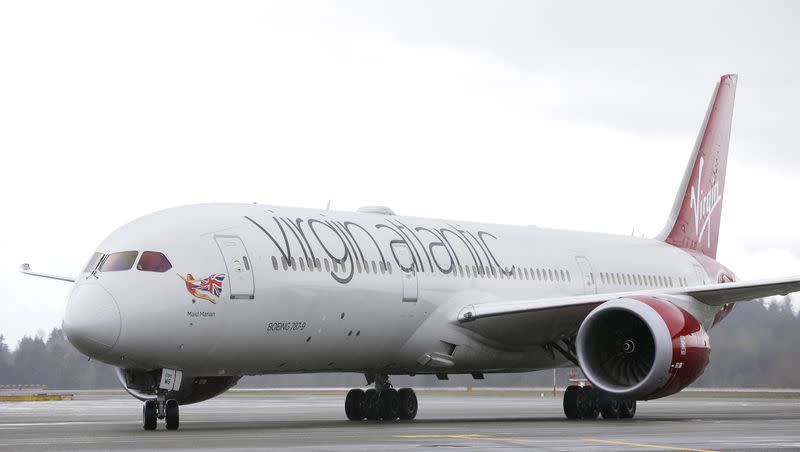Fossil fuel-free flight crosses Atlantic Ocean for first time ever

A commercial airplane has crossed the Atlantic Ocean without the use of fossil fuels for the first time ever.
A Virgin Atlantic Boeing 787 flew a test flight from London to New York Tuesday using only sustainable aviation fuel, or SAF, in what the U.K. Transport Department is calling, a “huge step towards jet zero,”—or lowering the aviation industry’s carbon footprint.
However, experts say that we are still far away from decarbonizing aviation.
What is SAF?
Sustainable aviation fuel is made from biofuels such as tallow, other waste fats and plant sugars, and reduces carbon emissions by 70%, according to a press release from Virgin Atlantic.
The airline describes SAF as a “mid-term viable solution” for decarbonizing aviation as more long-term solutions like electric and hydrogen remain “decades away.”
The problem with SAF
Though SAF has fewer carbon emissions than petroleum-based jet fuel, it is more expensive and represents less than 0.1% of jet fuel used globally. Current regulations also prevent using more than a 50% SAF blend for commercial jet engines.
This means Virgin Atlantic—and other commercial airlines—won’t be regularly offering any fossil fuel-free flights for passengers, The Washington Post reported.
Some experts say scaling up SAF also poses a roadblock for decarbonizing jetliners.
“One flight on 100% alternative fuel isn’t going to change the fact that 99.9% of aviation fuel is fossil fuel and there’s no great option for feedstock (raw materials) that can be scaled up sustainably,” Cat Hewitt, policy director at the Aviation Environment Federation, told CNN.
Related
“Until we have genuinely zero-emission technology available for flying, there’s really one thing that we know definitely works to cut aviation emissions — and that’s to fly less,” she added, per CNN.

